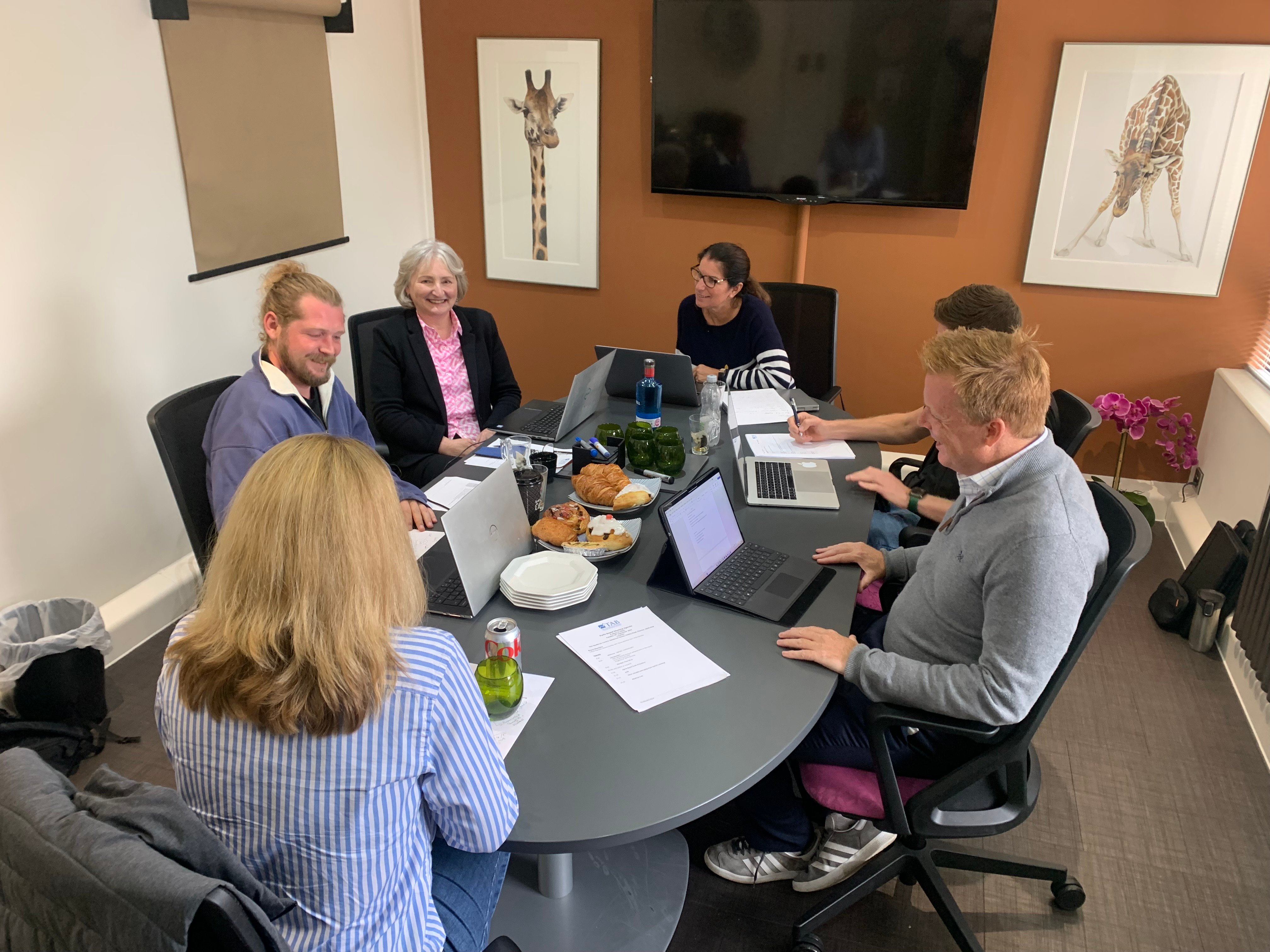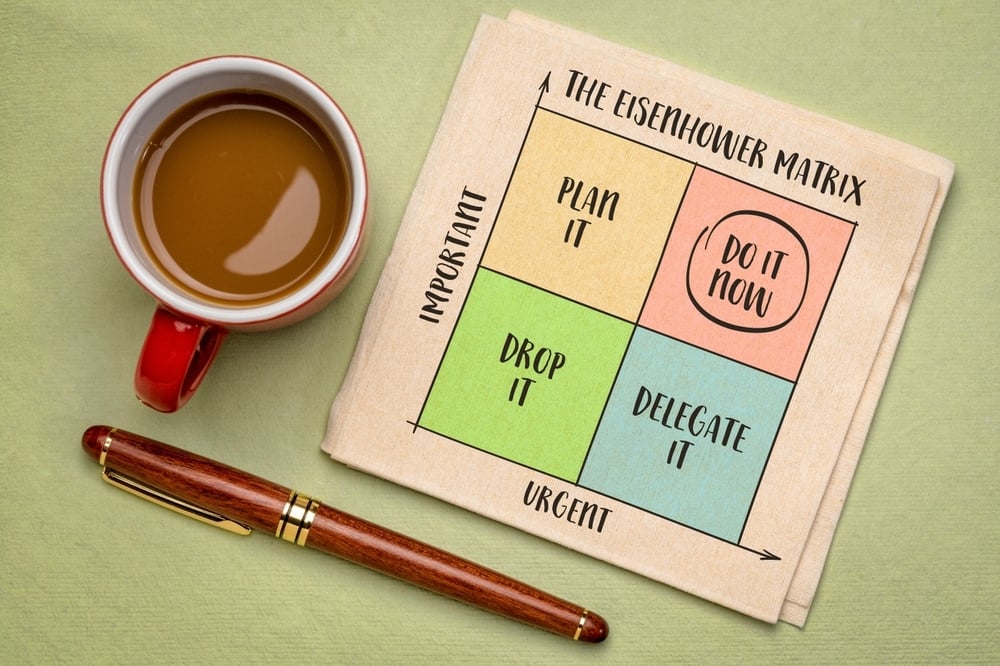
Ten self-care strategies for busy business minds
by Isháun Sahni
Listen to Audio Version:
Despite a slight glimmer of hope in the second quarter of 2023, UK business owners are still navigating a challenging landscape. With inflation at a 40-year high, supply chains in disarray, and the looming threat of a recession, it's no wonder that entrepreneurs are feeling the heat.

But TAB members know that taking care of themselves is essential to leading their businesses through tough times. That's why Isháun Sahni, our facilitator in West London, has put together this comprehensive guide to staying healthy in the current climate.
Ten ways to stay healthy as a business leader.
1. Signal from within
Our body is a complex and magical machine. It sends us messages and warning signs, but we often ignore them. In today's noisy and chaotic world, it's easy to tune out our body's signals, and our modern upbringing encourages us to be tough and brave, ignore pain, and keep going. But this is a mistake.
When we ignore our body's signals, we're setting ourselves up for problems. Pain is a sign that something is wrong; if we don't listen, the problem can worsen. We need to learn to listen to our bodies and pay attention to the signals they send us. This means being mindful of our physical and emotional states and willing to slow down and rest when needed.
2. Be aware of stress
Effective communication with your partner, family, and friends is paramount. Studies show that discussing our difficulties with someone we trust can significantly diminish feelings of anxiety, worry, or anger, thereby reducing stress.
Identifying the onset of stress, acknowledging it, and initiating corrective measures is a nuanced skill. Stress is indiscriminate, affecting individuals regardless of age, gender, ethnicity, or religious beliefs. These concerning statistics about stress reflect the widespread prevalence of stress, resulting in many health-related problems.
3. Meditation
Meditation is more than just sitting with your eyes closed. It's about training your mind and body to work together. It's important to exercise our minds and bodies, and meditation teaches us to focus our attention, manage our thoughts, and relax our bodies.
When we meditate, we train our minds to be more present and aware. We also learn to let go of negative thoughts and emotions, which can help us reduce stress, anxiety, and worry.
Meditation can also help us to relax our bodies and improve our physical health. When we meditate, our muscles relax, and our breathing becomes slower and deeper. This can help to reduce blood pressure, improve heart health, and boost the immune system.
In short, meditation is a powerful tool that can help us to stay healthy and centred during challenging times.
[Free 14-day trial to Headspace, a guided meditation app]
4. Yoga
Research has shown that yoga has a wide range of health benefits, including improved flexibility, strength, balance, and coordination. It can also help to reduce stress, anxiety, and depression. Harvard Health Publishing notes that yoga is "highly impactful in improving health."
Practising yoga on a regular basis can lead to significant improvements in physical and mental health and well-being.
5. Utilise your trusted support group
Experts agree that talking about our problems can help to reduce stress and lighten the load. When we talk about a problem, we can start to break it down into smaller, more manageable parts. This can make the problem seem less daunting and help us to feel more in control.
If you have a TAB advisory board, make sure to bring your most important issues to the table and speak to your facilitator. Your board members and facilitator are there to support you and help you to find solutions.
[Find out more about how a TAB advisory board can help.]

6. Be mindful of your habits and routine
Take a close look at your current habits and routine, and decide if they are serving you. Your mind remembers whether or not a routine is enjoyable, so it's important to set yourself up for success. For example, if you go for a run in the cold, your brain will remember this and be less likely to motivate you to run in the future.
7. Prioritise sleep
The power of sleep is hugely underestimated. At least 7 hours are required each night for proper cognitive and behavioural functions. According to The Sleep Foundation, insufficient sleep can lead to serious repercussions. Some studies have shown sleep deprivation leaves people vulnerable to attention lapses, reduced cognition, delayed reactions, and mood shifts.
8. Eat the right food
Eating nutritious food gives you sustained energy levels and helps you enjoy life more fully. Starting your day with water and lemon can be a great way to boost your energy and hydration.
We are what we eat, so eating a balanced diet and drinking plenty of water will help you feel more energised, motivated, and productive, especially when you're faced with challenges or experiencing a particularly busy time at work.
9. Use smart technologies
With the advent of affordable smartwatches, we can track our health and fitness data more easily than ever. Smartwatches can monitor our blood pressure, heart rate, sleep quality, and steps taken, and provide us with valuable insights into our overall health and well-being.
These smartwatches offer a variety of features designed to help people stay safe and healthy, including:
- Fall detection
- Emergency calling
- Two-way communication
- Heart rate monitoring
- GPS tracking
- Activity tracking
- Medication reminders
This type of technology can be a valuable tool for managing your health and well-being, especially if you have chronic health conditions or are at risk for falls. If you are considering getting a smartwatch, be sure to choose one that offers the most important features for you.
[TechRadar's list of the best medical alert smartwatches of 2023.]
10. Be grateful
We often forget how fortunate we are to have whatever we have. By default, we tend to drift into focusing on the negatives in life. We all have stress and hardship, but it’s all about how we navigate them. By being grateful, we can begin to appreciate what's around us and improve our mindset to tackle what's ahead.
Related articles

How to Train Employees to Spot Social Engineering Attacks
Stay protected from social engineering attacks with our complete guide. Get tactics, training, security policies, and technology to keep your business safe
-3.png)
Conquering Imposter Syndrome: Strategies for Business Leaders
Conquer Imposter Syndrome as a business leader with practical strategies and insights on overcoming self-doubt and embracing your full potential.

Business Growth Networks: Building Connections in 2025
Discover how business growth networks in 2025 help UK leaders build valuable connections, find new opportunities, and accelerate sustainable growth.





